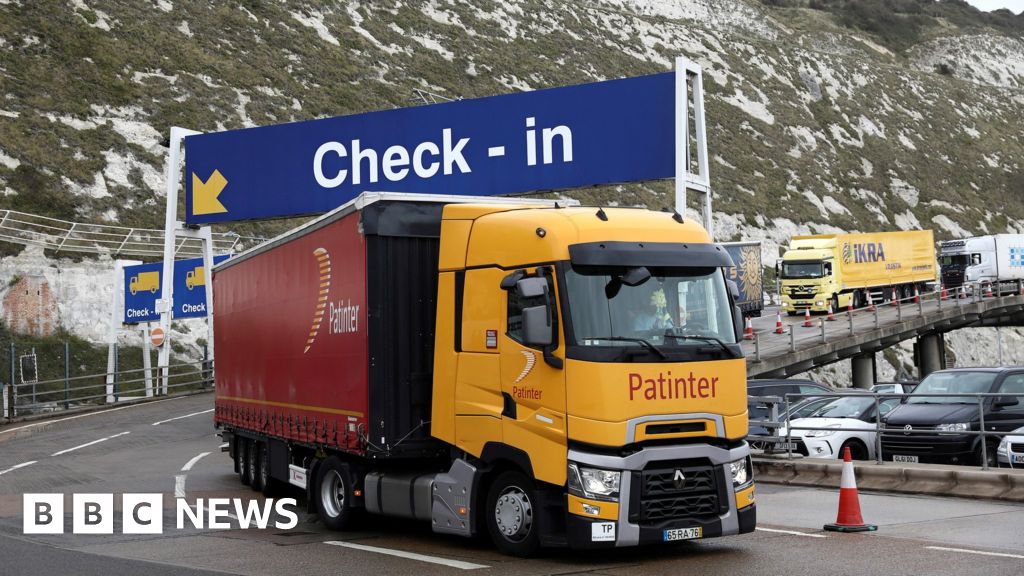The government says "huge advances" have been made in its preparations, but businesses that trade across the border are extremely concerned.
And the National Audit Office said recently that, despite progress by government departments, "...it is still likely that widespread disruption will occur from 1 January 2021", with significant risks relating to Northern Ireland "and trader readiness more generally".
There will be big changes at UK borders, whether or not a post-Brexit trade deal is agreed with the EU in the coming days and weeks.
A trade deal would remove the need for tariffs (or taxes) to be paid on goods crossing borders.
But from 1 January, goods entering the EU from Great Britain (England, Scotland and Wales - Northern Ireland is a different category) will face large amounts of new paperwork and checks.
And businesses that rely on trade across the border dismiss suggestions that fears of disruption are being overblown.
"This is the biggest imposition of red tape that businesses have had to deal with in 50 years," says William Bain from the British Retail Consortium.
But in response to the devastating impact of the Covid crisis on most businesses, it chose to delay by six months the imposition of full controls on goods entering Great Britain from the EU.
Eighty-five per cent of the volume of trade between the EU and Great Britain is carried by EU hauliers, who are often paid not by the hour, but by the kilometre.
The government says the readiness of traders to deal with the new system remains its biggest concern.
The government says it is "urging business owners to make their final preparations before new rules come into force" and it has now announced a new Border Operations Centre as part of its plans "for the UK to have the world's most effective border by 2025".
"Some gaps are possible but we're not going to run out of food - that's not going to happen" says Ian Wright, chief executive of the Food and Drink Federation, who adds that if there was no deal, and tariffs were imposed, things would become difficult for a while.
Finally, many traders and businesses are worried about what will happen in Northern Ireland.
Depending on the outcome of the current trade negotiations, and separate talks in a Joint UK-EU committee, tariffs may have to be paid on certain goods moving within the UK from Great Britain to Northern Ireland, if they are deemed to be "at risk" of moving on to the Republic of Ireland in the EU.
"A massive amount of food for Northern Ireland comes across from GB and right now no-one - literally no-one - knows all the rules and procedures under which that trade will be conducted," says Ian Wright.
Even if there is a trade deal and tariffs can be avoided, full checks will have to take place on goods from 1 January, and businesses say the system simply isn't ready?
Concern about the issue even prompted a rare joint intervention from political rivals: the Northern Ireland First Minister Arlene Foster and Deputy First Minister Michelle O'Neill.
A new customs system, which none of the traders have used before, is also being introduced for Great Britain to Northern Ireland trade, and companies still don't know what they are trying to plan for.
So, business groups in Northern Ireland are united in calling for an adjustment period - another transition in all but name - to give them more time to get ready.
